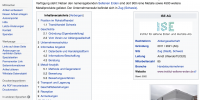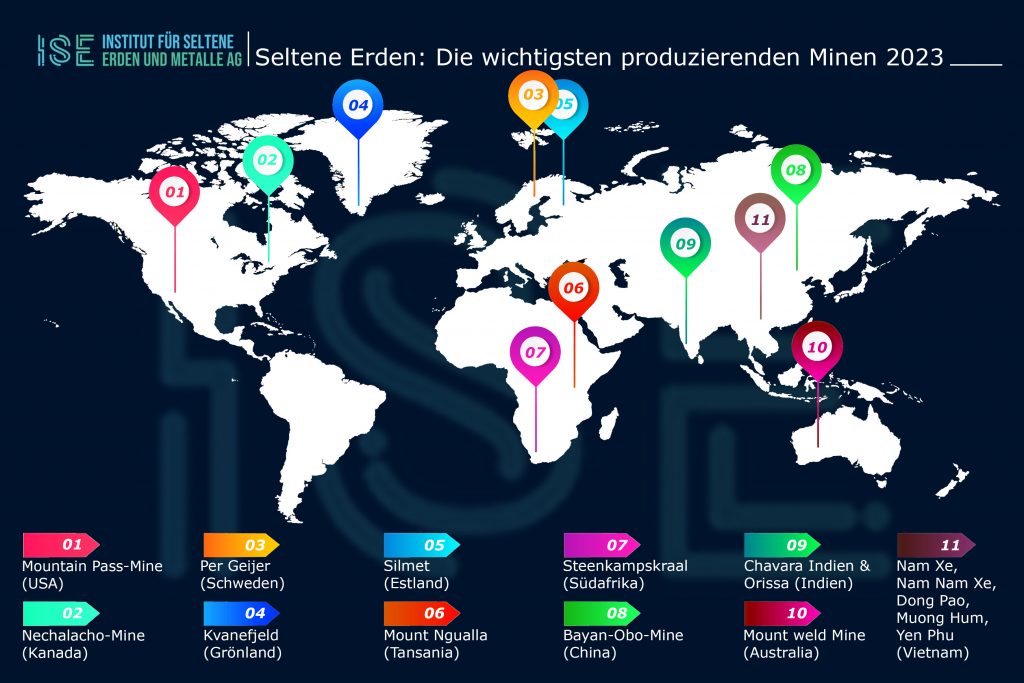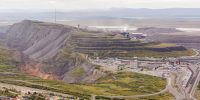Metals of the so-called rare earth are stuck in most electronic devices today. The Thuringian researcher Ralf Müller wants to promote the recycling of such substances in this country.
Weimar. Who likes to forego quality of life - most people take electricity from the socket as a matter of course, as do using a mobile phone. But for all of this to work smoothly, raw materials are required that are currently hardly available in Germany: rare earths or, more precisely, the rare earth metals. That is a total of 14 elements that can be found in numerous applications - but are only dismantled in a few places and are currently hardly processed in Germany.
"In doing so, we should have long since learned to conserve our resources," says Ralf Müller. The university lecturer with two doctorates warns that Germany's economic development could be jeopardized if the main producer, China, should cut deliveries at some point. This has happened in the past.
Recently, the World Trade Organization condemned the Chinese to lift their export restrictions and no longer give preference to their own industry for deliveries. But Müller, who occasionally still gives lectures despite his 77 years of age, is not enough: “This is of strategic interest for our economy.” For example, the generation of electricity from wind is a priority. Germany has decided in favor of the energy transition, but uses wind turbines that do not work as efficiently as is technically possible. "If the offshore plants off the coast were operated with generators that use a magnet that is at least partially made of neodymium, much more power would be possible." Neodymium is one of the 14 elements of the rare earths and is currently 97 percent in China dismantled - as can be read in various media reports, mostly under the most adverse conditions.
The Thuringian researcher is convinced that recycling here on site can do much more in this direction. According to Müller's colleague Professor Bernhard Adler, electronic devices are already being dismantled according to fixed plans in a workshop for the disabled in Nordhausen, and the raw materials are being sold to a specialized company that continues the processing. “If the components are macroscopically tangible, they can also be broken out of the devices by hand.” By “devices” he means things like cell phones or televisions. Adler initially dismantled such a device itself. “On this basis, I then draw up dismantling plans that can be used in the workshop.” Examples of magnets made of rare earth metals include speakers in cell phones or fans in computers. Appropriate substances can also be obtained from microphones - of course only in small quantities. "If you know where the raw materials can be found, it can be done very quickly for each individual device."
Raw materials dumped tons
Instead, 400 to 500 tons of neodymium are simply thrown away every year in Germany, polluting the environment and having to be reclaimed for new devices. That doesn't happen in Germany, but mostly in China. In order for that to change, consumers and the state must be aware of the resources that would be wasted if the raw materials used were simply thrown away. “In Bitterfeld, for example, there are a lot of incorrectly thrown in the orange bins intended for electronic scrap. We even found bicycle parts there. ”In Halle (Saale), on the other hand, there is a lot of collection. But there is still a lot to do in the municipalities. Often the materials are accepted at recycling centers, in Jena there is now a specialized bin at the collection bins for glass bottles. There are 125 containers throughout the city, in which a total of 2014 tons of small electronic waste were collected in 250. The Elektro-Altgeräte Register foundation is currently taking care of recycling, and soon a company will take over the business, said city spokeswoman Barbara Glasser of the TLZ.
It is economically worthwhile - the energy turnaround is politically wanted, says Adler. “But then people mustn't resist what is necessary to implement them.” This also includes new lines and powerful wind turbines. The raw materials for this would have to come from somewhere. “Instead, energy policy usually only spits big tones.” The first step on the way to the success of the energy transition is now to increase the recycling of electronic scrap and the rare earth metals it contains. “The raw materials contained in a million cell phones would cost more than a million euros if they were newly purchased. The bottom line is that I am sure that a profit can be made with sensible pre-sorting, ”says Adler. For example, the retired professor is helping to train recycling engineers at the Nordhausen University of Applied Sciences. At some point they should help "so that not so much is wasted", he says. After all, recycling is not his passion, but is based on a defect that requires holistic solutions. "More recycling is just the beginning."
Florian Girwert / April 01.04.15st, XNUMX / TLZ
Source: http://www.tlz.de/web/zgt/wirtschaft/detail/-/specific/Thueringer-Forscher-will-Recycling-Seltener-Erden-hierzulande-etablieren-1611471013





